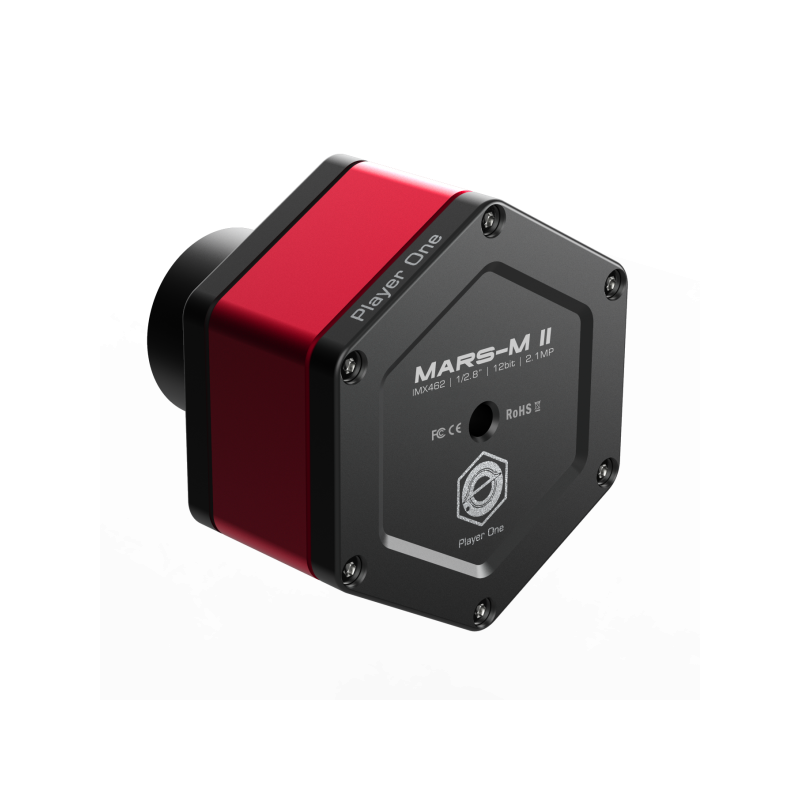
Reference: ZWEAF-N
Brand: ZWO
Reference: ZWEAF-N
Brand: ZWO
Reference: POA-URANUS-C
Brand: Player One
Reference: POA-ACS
Brand: Player One
Reference: AS-FRA400
Brand: ASKAR - Sharpstar
Reference: ZWASI120MINI
Brand: ZWO
Reference: AS-SET-DUO-D1D2
Brand: ASKAR - Sharpstar
Reference: ZWDC-Y-SPLIT
Brand: ZWO
Reference: AS-REDFRA400
Brand: ASKAR - Sharpstar
Banner






Caméra Nouvelle Génération MARS-M II Monochrome
 security
security
100% Secure Payment
 Delivery policy
Delivery policy
Express shipping of in-stock parts
 RETURN POLICY
RETURN POLICY
Express shipping of in-stock parts
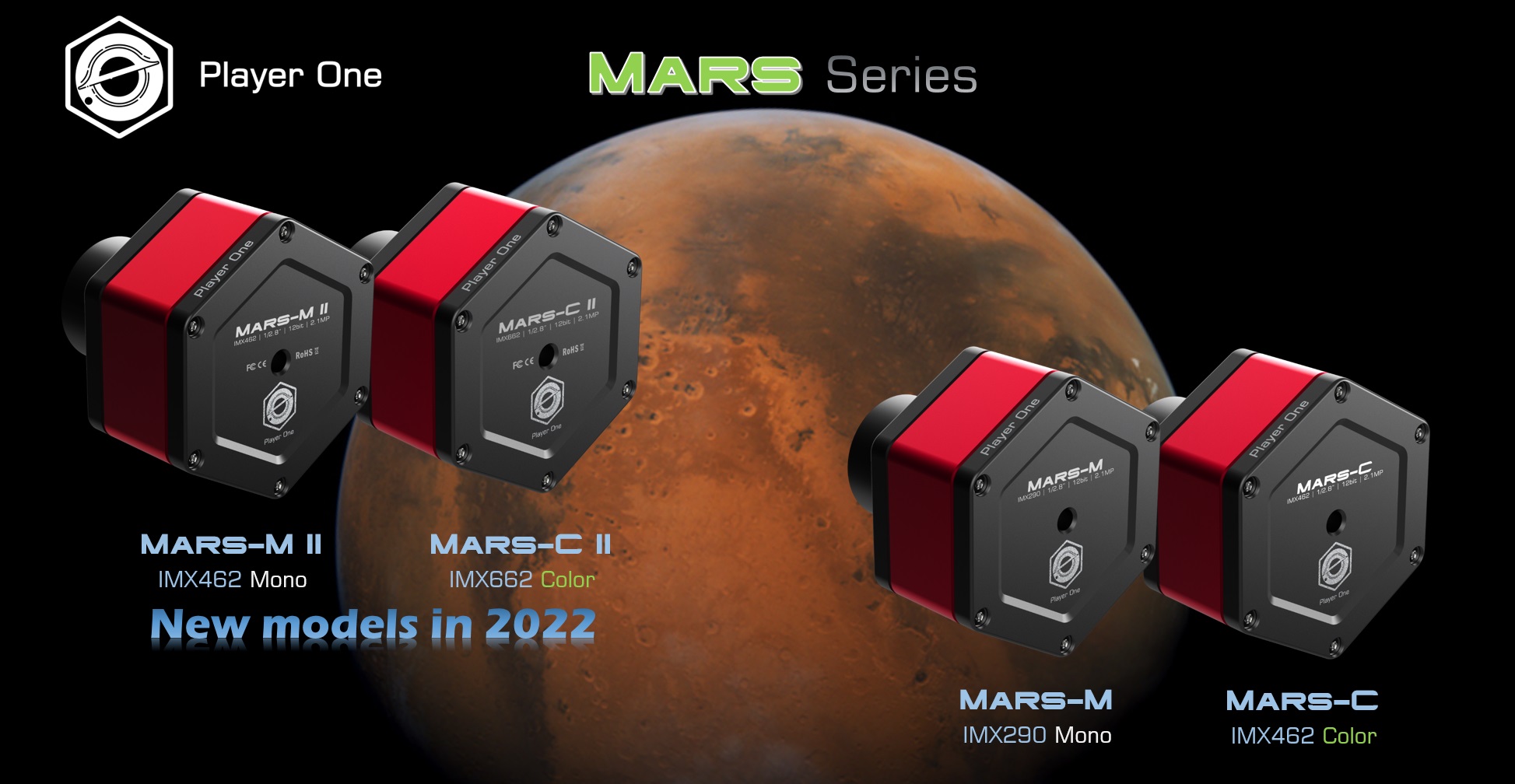
Mars-M II is a very anticipated monochrome camera, the newest planetary camera which developed by Player One Astronomy. We wait for this monochrome sensor for 2 years. Mars-M II (IMX462) camera adopts the Sony IMX462 1/2.8” monochrome sensor.. The 2.9um pixel size accommodates a well depth of 12ke with a total of 2.1MP (the resolution is 1944*1096), and the diagonal is 6.46 mm.
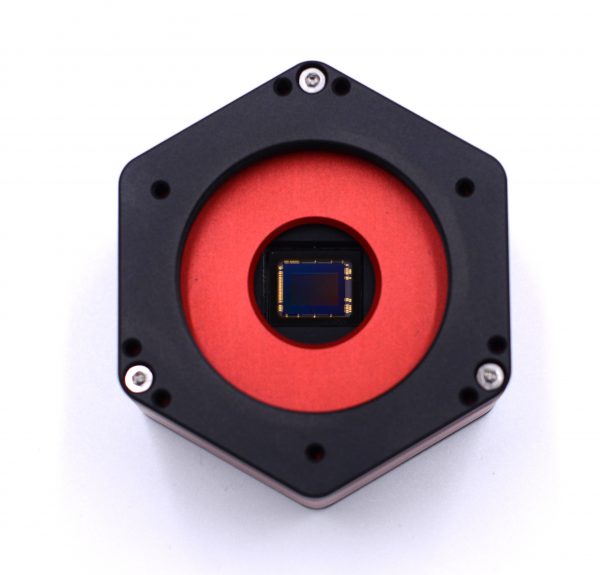
Mars-M II using this super AR Plus window in front of it. This window glass can give super high transmittance from 310nm to 1100nm. This important improvement, make Mars-M II (IMX462) camera has much better performance in both Ultravoilet and NIR.
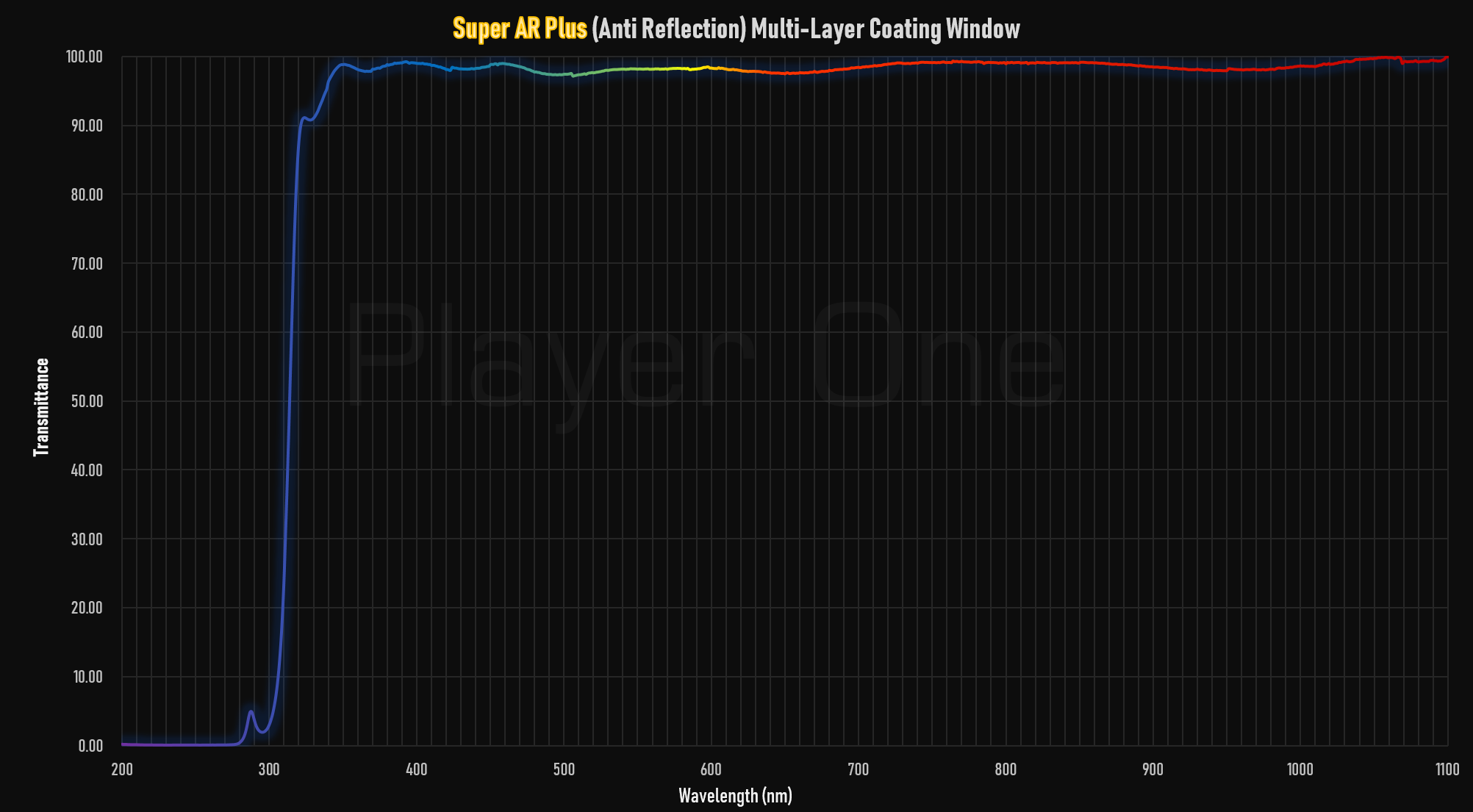
The naming of Player One Astronomy cameras is unique. For example, we name the planetary cameras after planets (They are Mercury, Venus, Mars, Jupiter, Saturn, Uranus, and Neptune, Earth is not included). The size of each planet to a certain extent represents the size of camera sensors. We will name Saturn with a 1-inch sensor camera, and for Mars, we will name it with a ½.8 inch sensor camera. All names will be engraved on the housing of the cameras.
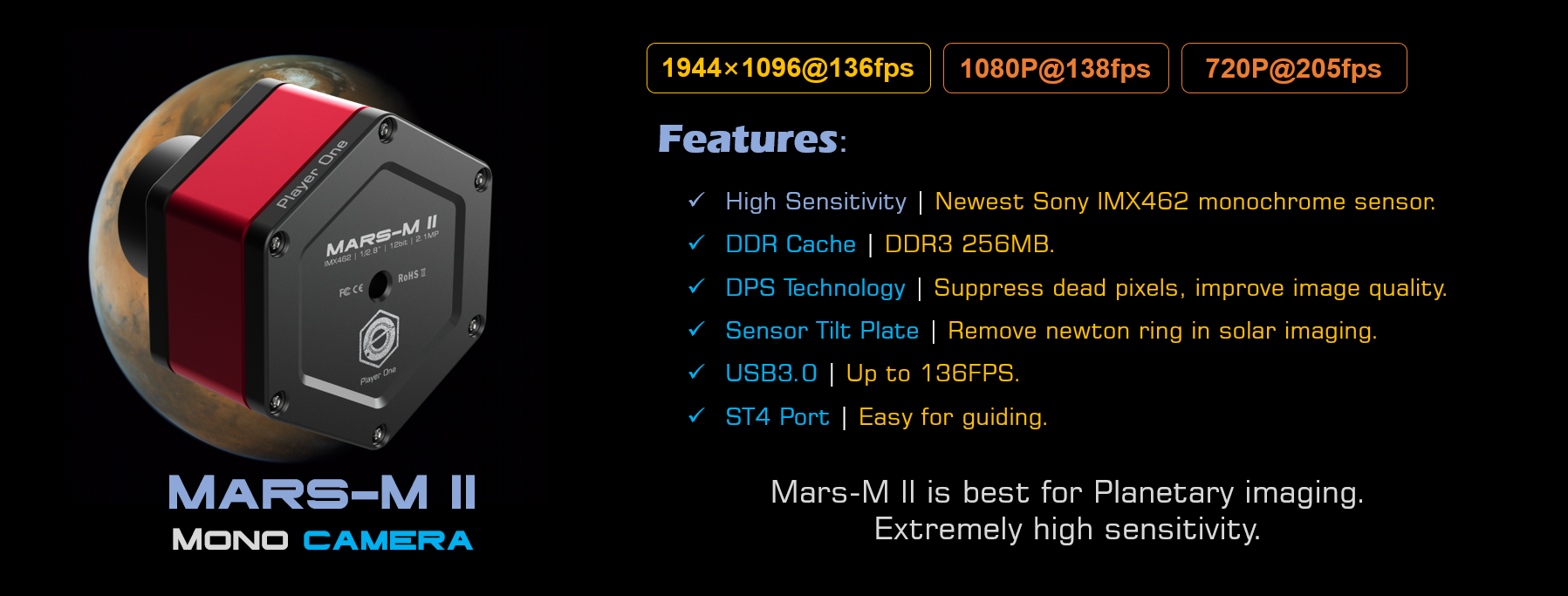
The planetary cameras developed by Player One Astronomy use a scientific and technological regular hexagon to construct the main body line, supplemented by round chamfers to achieve both rigidity and flexibility. The positive red, which is like a summer fire, is matched with the low-key and steady black, and the super-fine frosting process on the entire surface makes the camera look luxurious and cool, highlighting the style of high-end players, can’t take my eyes off ; D
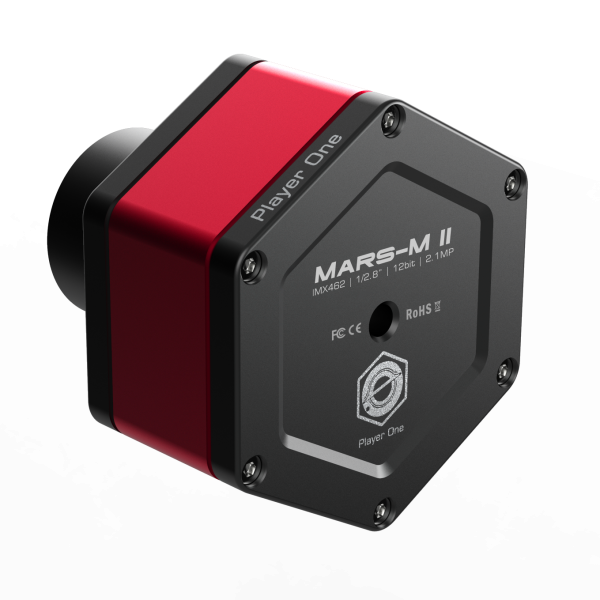
The built-in high-density sponge shading pad can block the light from the side slits without any side leakage.
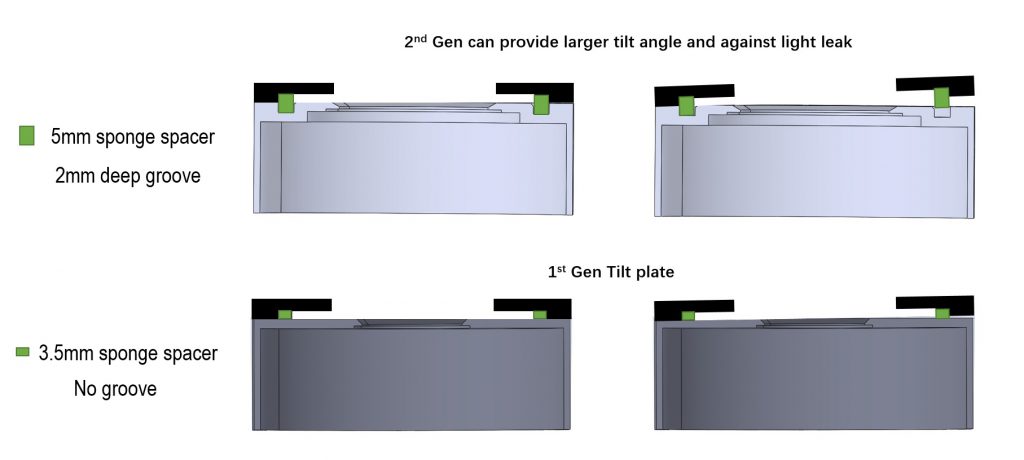
When taking solar photograph with prominence telescope, the Newton ring is annoying. Smoother solar image without Newton ring could be taken by adjusting the focal plate. Get a much smaller field curvature of the telescope.
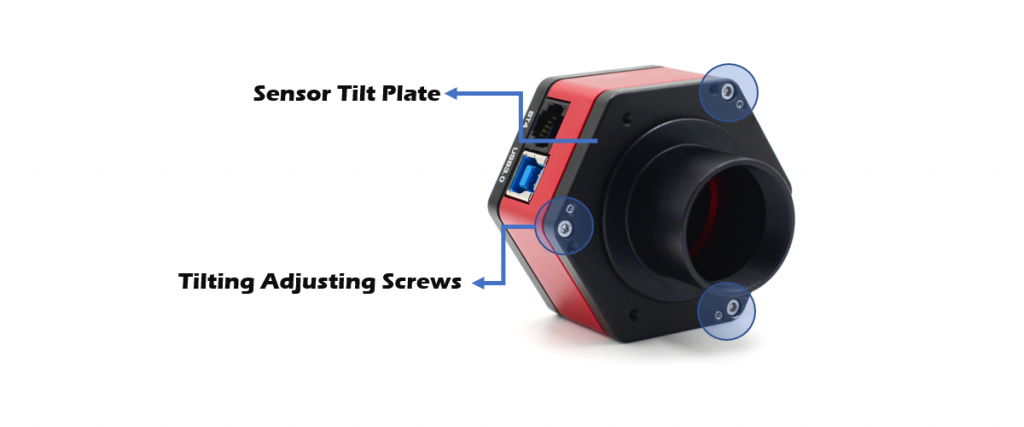
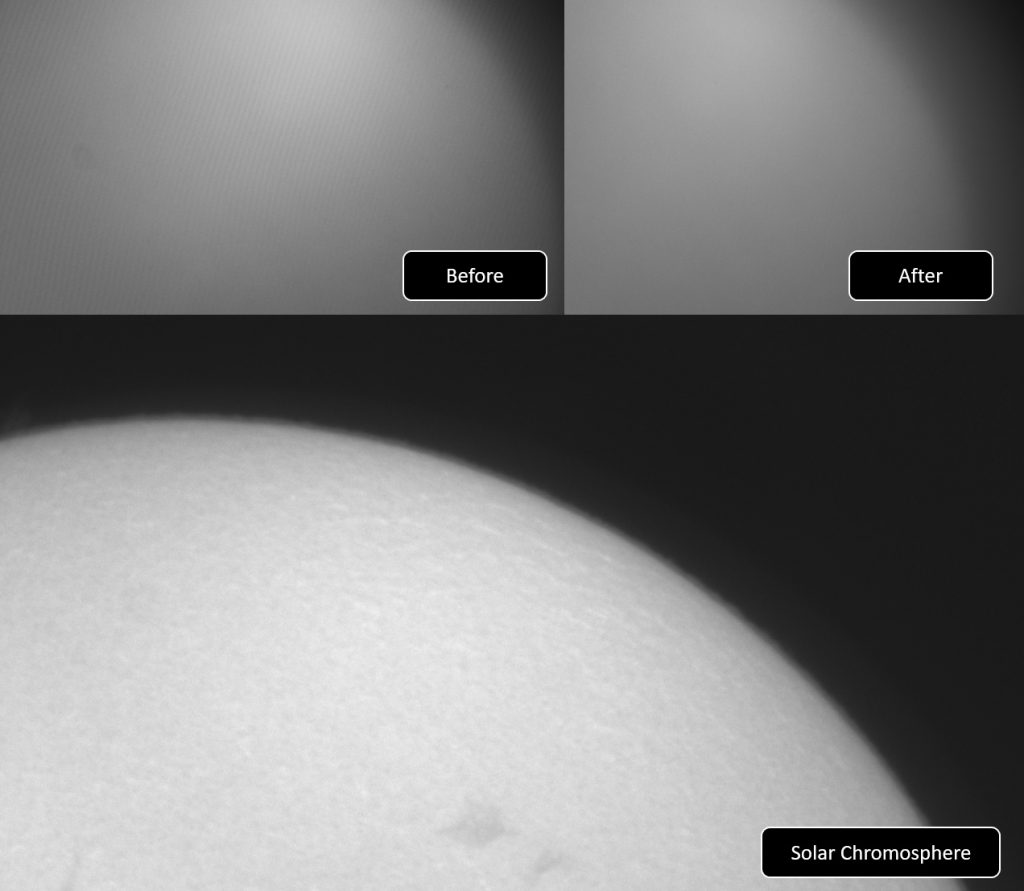
Player One Astronomy cameras are the first ones who adopt the DDR3 cache in all planetary cameras in the world! It helps stabilize and secure data transmission, effectively avoids frame dropping, and greatly reduces read noise.
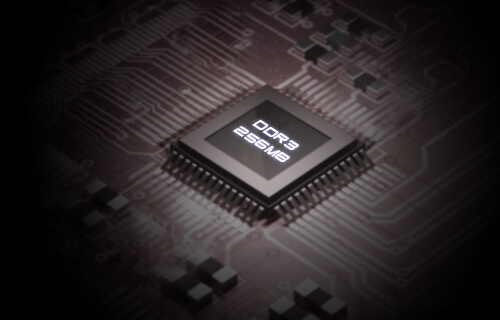
With the DDR3 cache, the Mars-C camera does not have high demands on computing needs any longer, it will still have excellent performance even if it is connected to a USB 2.0 port.
The planetary cameras from Player One Astronomy have DPS (Dead Pixel Suppression) technology. The DPS is anaylse many dark frames to find out thoes fixed abnormal pixel and record the map in camera memory. In imaging, each exposure frames, thoes position of dead pixels will be given a median value according to the active pixels around that abnormal pixel.
![]()
Player One cameras produced by the number one player ensure the safety of your camera and other equipment through overvoltage and overcurrent protection mechanisms.
When the camera is connected to the USB3.0 interface and a full-resolution preview is used, it can reach 136 FPS in RAW8 mode (10bit ADC), and the frame rate in RAW16 mode (12bit ADC) is 64 frames per second. When recording images, since the actual writing speed will be affected by the writing speed of the hard disk itself, when the hard disk writing speed is slow, the recording may not reach the theoretical speed. It is recommended that you use a high-quality solid-state drive to record data to give full play to the performance of the camera.
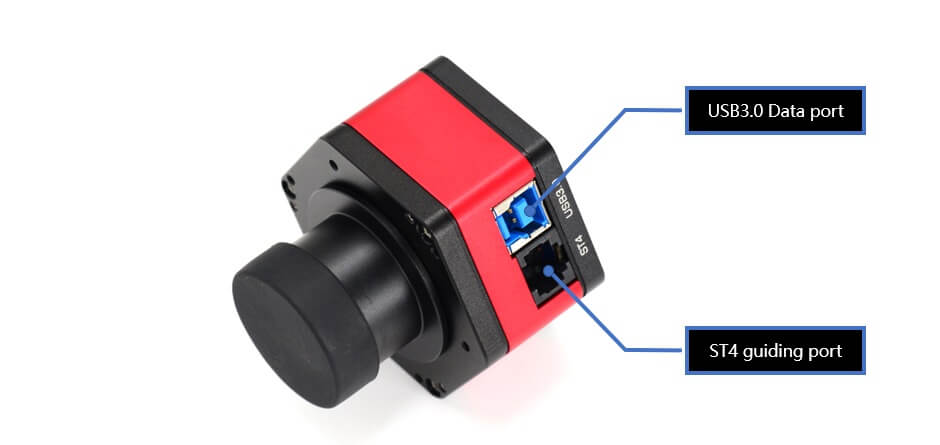
Use the ST4 guide cable to connect the camera and the AUTO GUIDE port of the equatorial mount to do the guiding.
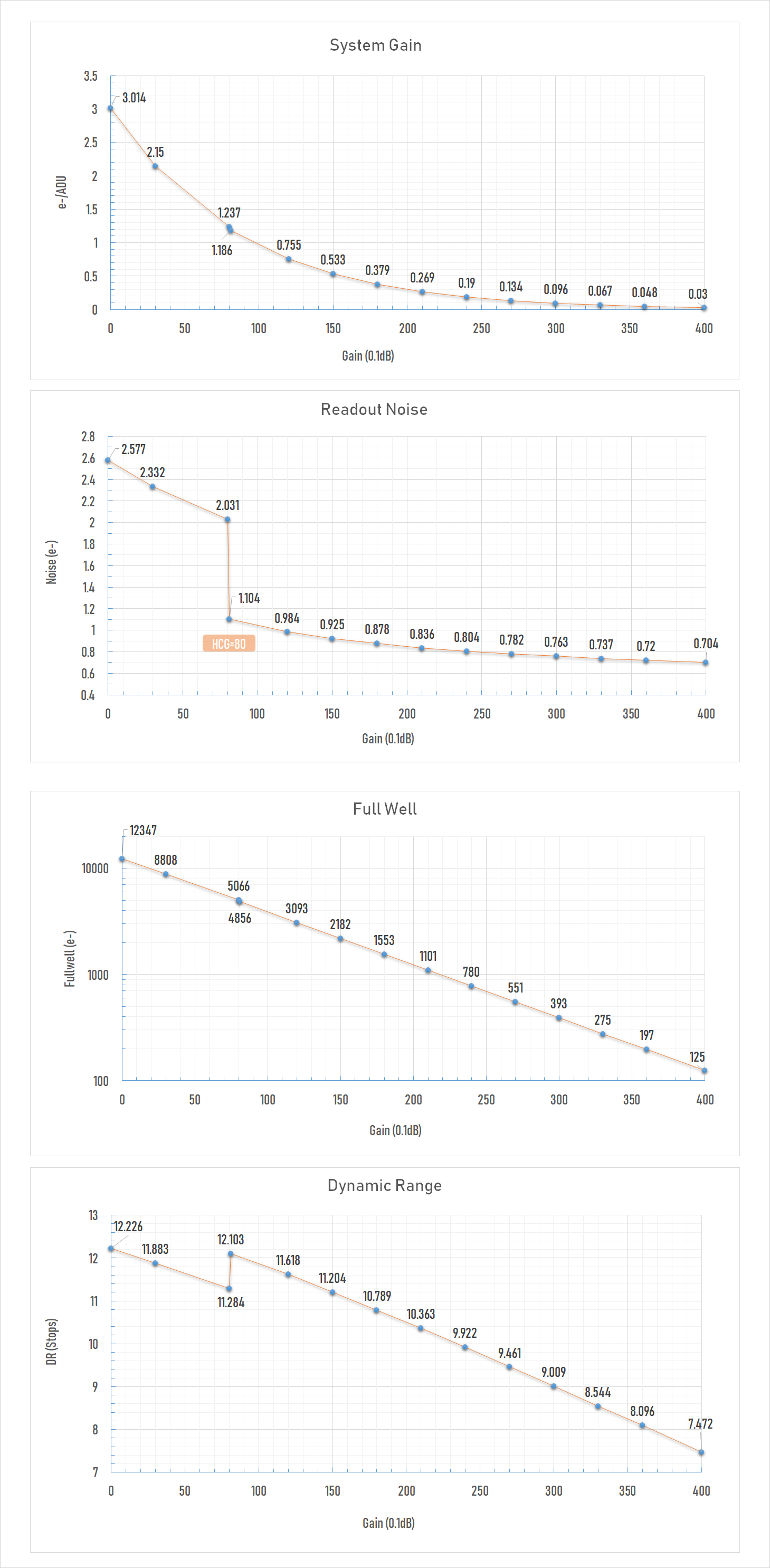
Regarding readout noise, we solemnly promise that all values are obtained from actual tests. And for users, you could use Sharpcap 4 for testing. SC4 has a function called Sensor Analysis, provide a very simple way to test readout noise.
After many rigorous readout noise tests, the Mars-M II camera can reach a low readout noise of 0.73e at a gain of 350 and around 0.7e at a gain of 400.
If you are interested in readout noise testing, you may try it yourself, which is very simple.
The Mars-M II camera has a unique HCG mode, which will automatically turn on when the camera gain setting is ≥80. The HCG mode can greatly reduce the readout noise and retain the same high dynamic range as the low gain.
The QE curve of the Mars-M II camera is quite different than Mars-C. The sensitivity reaches its peak at 650-700nm, and keep very high QE in infrared.
This is the relative QE curve which provided by Sony, the absolute QE peak about 90%.
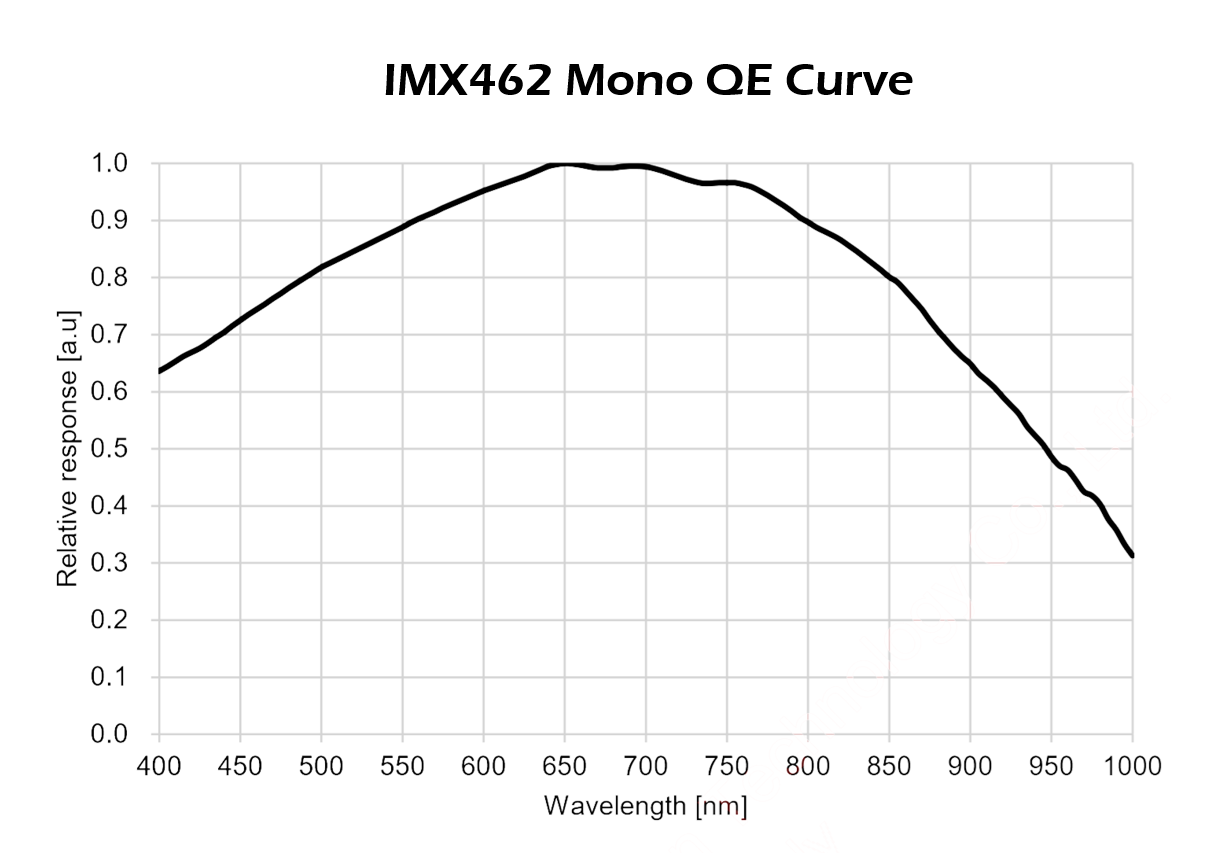

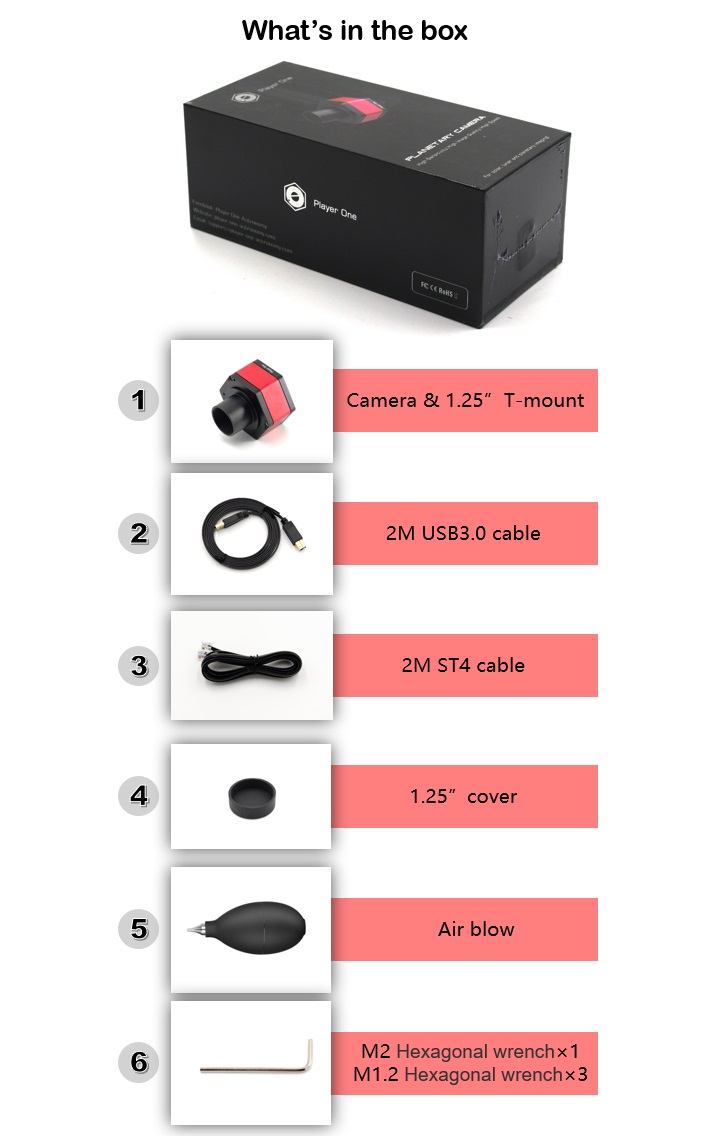
Data sheet
No customer reviews for the moment.
Reference: CG-3000A
Reference: C1-12000CSCouleur
Brand: Moravian
Reference: C1-1500CSCouleur
Brand: Moravian
Reference: ZWASI120MINI
Brand: ZWO
Reference: POA-NEPTUNE-C
Brand: Player One
Reference: POA-URANUS-M
Brand: Player One
Reference: ZWASI183MM
Brand: ZWO
Reference: C1-5000CSMono
Brand: Moravian
Reference: ZWASI294MC
Brand: ZWO
Reference: POA-XENA-M
Brand: Player One
Reference: POA-APOLLO-M-MINI
Brand: Player One
Reference: POA-APOLLO-M-MAX
Brand: Player One
Reference: C1-3000CSMono
Brand: Moravian
Reference: POA-MARS-C
Brand: Player One
Reference: C1-3000CSCouleur
Brand: Moravian
Reference: POA-URANUS-C
Brand: Player One

Caméra Nouvelle Génération MARS-M II Monochrome
check_circle
check_circle